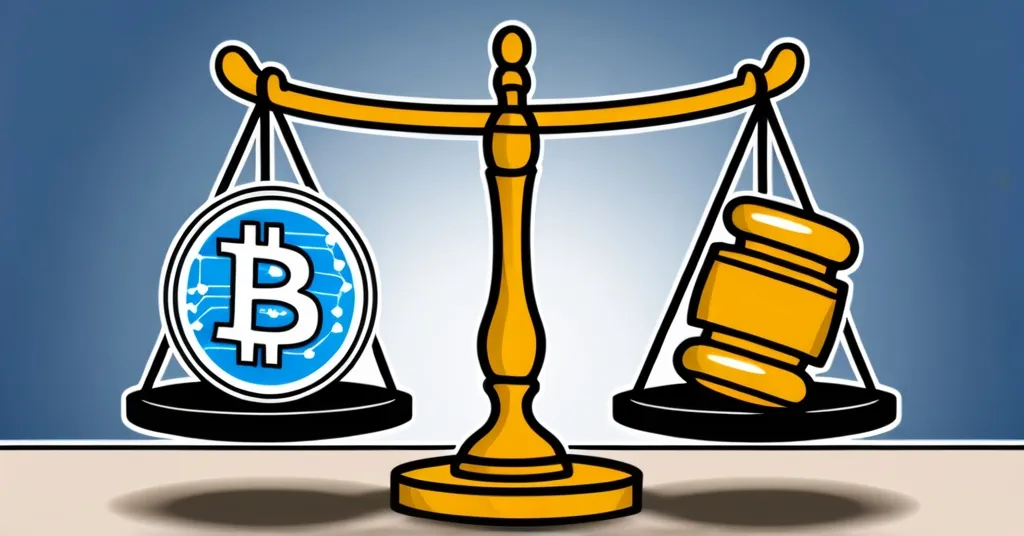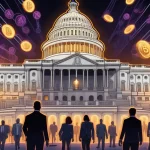Rep. French Hill Pushes for Crypto Regulatory Overhaul to Boost Innovation

Rep. French Hill’s Vision for a New Era in U.S. Crypto Regulation
In a bold move to reshape the future of cryptocurrency in America, Rep. French Hill is pushing for a regulatory overhaul that promises to protect investors and spur innovation. This initiative aims to dismantle what Hill describes as the previous administration’s strict and aggressive regulatory tactics, replacing them with clear, investor-friendly guidelines.
- Rep. French Hill’s regulatory reform plan
- Criticism of former SEC Chair Gary Gensler
- Bipartisan working group formation
- President Trump’s executive order
Rep. French Hill, the Republican chair of the House Financial Services Committee, has been vocal about the need for a more transparent and fair regulatory environment for cryptocurrencies. He argues that the heavy-handed approach of former SEC Chair Gary Gensler forced many crypto firms to relocate to more welcoming jurisdictions like London, the EU, and the Middle East. “We’re going to pass regulatory clarity,” Hill stated, emphasizing the necessity for an open and transparent process in regulatory development. “We should ask that they use an open process through the federal register to propose new rules which Gary again did not do,” he added, critiquing the lack of public engagement in past regulatory actions.
Heavy-handed enforcement refers to the strict and aggressive regulation of the crypto industry, which can include surprise audits, fines, and legal actions without clear guidelines. In contrast, the federal register is a daily publication where federal agencies propose rules and regulations, allowing for public comment and feedback, fostering transparency and accountability.
To address these concerns, Hill has announced the formation of a bipartisan working group, which includes members from the House Financial Services Committee, House Agriculture Committee, Senate Banking Committee, and Senate Agriculture Committee. A bipartisan working group is a collaborative effort involving lawmakers from different political parties working together to address a specific issue. This group aims to craft new digital asset policies that not only protect investors but also encourage innovation in the digital asset space. “We don’t want to be behind in financial technology and digital assets in the United States,” Hill emphasized, underlining the importance of maintaining U.S. competitiveness in the global market.
Supporting this push for reform, President Trump recently signed an executive order to establish a cryptocurrency working group. An executive order is a directive issued by the President that has the force of law, used to implement policy changes or establish new initiatives. Trump’s order not only aims to investigate the establishment of a national cryptocurrency stockpile but also seeks to protect banking services for crypto companies. This move indicates a broader commitment to ensuring the U.S. remains at the forefront of digital financial technology, while also revoking previous Biden administration policies and prohibiting the establishment of government-backed digital currencies, or CBDCs. Trump’s stance reflects a preference for the decentralized nature of cryptocurrencies over centralized digital currencies.
While the potential benefits of these reforms are clear, it’s important to consider the challenges and criticisms. Some argue that the proposed changes might be too idealistic, questioning the feasibility of achieving a truly balanced regulatory framework. Others express concerns about regulatory capture, where regulatory agencies might favor certain industry players over others. Despite these counterpoints, the urgency of these reforms is underscored by the emotional toll of regulatory uncertainty on investors, which can lead to stress and anxiety. Hill’s initiative, therefore, is not just about economic policy but also about fostering a healthier environment for those invested in the crypto space.
As the U.S. navigates this new regulatory landscape, the involvement of industry stakeholders will be crucial in shaping the working group’s agenda. Their feedback could significantly influence the future of cryptocurrency regulations, ensuring they are both effective and fair. The broader implications of these changes for investors, crypto firms, and the economy are significant, and the success of this initiative will depend on the ability to strike a balance between innovation and investor protection.
Key Takeaways and Questions
- What is the main goal of Rep. French Hill’s regulatory reform plan?
The main goal is to replace strict and aggressive regulation with clear, investor-friendly guidelines that protect investors and spur innovation in the digital asset space.
- Who did Rep. French Hill criticize for driving crypto firms overseas?
Rep. French Hill criticized former SEC Chair Gary Gensler for his heavy-handed regulatory approach.
- What actions has President Trump taken to support the crypto industry?
President Trump signed an executive order to create a cryptocurrency working group and investigate the possibility of establishing a national cryptocurrency stockpile, while also aiming to protect banking services for crypto companies.
- Which congressional committees are involved in the bipartisan working group for digital asset policies?
The House Financial Services Committee, House Agriculture Committee, Senate Banking Committee, and Senate Agriculture Committee are involved.
- How does the new regulatory approach aim to foster trust and accountability?
By using an open process through the federal register to propose new rules, fostering transparency and accountability in regulatory development.



